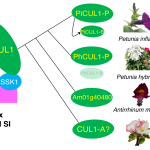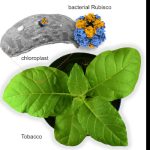Dealing with Health Anxiety in the Lab: A Short Guide
I would like to start by making it clear that this article is not intended to replace the help and guidance of a professional. Self-diagnosis and self-treatment of any illness can be detrimental to health.
According to the American Psychological Association, health anxiety is excessive or inappropriate anxiety about one’s health based on the misinterpretation of symptoms (e.g., pain, gastrointestinal distress) as indicative of serious illness. Health anxiety is often associated with hypochondriasis (American Psychiatric Association, 2022). Although health anxiety is not a severe pathology, it can become disabling if not adequately treated.
As researchers, depending on our area of study, we are exposed to a greater or lesser degree to reagents, equipment, and even samples, such as the use of organic compounds like phenol or prolonged exposure to UV light. These could cause a negative impact on our health if we do not use all the necessary biosafety measures . For those dealing with health anxiety, these potential sources of risk promote health concerns and, in many cases, hinder laboratory performance. The purpose of the guide is to recognize and reduce the anxiety that can be triggered by our work environment.
A typical patient with health anxiety
There is usually no difficulty in identifying that the patient is concerned about his or her health, but it is necessary to recognize that the concern expressed is abnormal and almost certainly unjustified. The easiest way to identify this abnormal concern is in the number of times the person has consulted for health problems and nothing has been found to be wrong.
The characteristic features of a patient with health anxiety are excessive preoccupation with health, hypervigilance regarding the body and bodily functions, repeated checking of the body for signs of illness, fear of having or developing a serious or incurable illness, a constant need for reassurance, and frequent medical appointments (Tyrer & Tyrer, 2018).
If you identify with or know someone with these symptoms in the laboratory, consider the following recommendations:
- Consult an expert – As we have already mentioned, self-treatment of any pathology is detrimental to health. Once it is recognized that we have an excessive concern for our health, it is necessary to turn to a psychologist who will give us an accurate diagnosis and assist us in the treatment of the disorder.
- Keep in mind the biosecurity measures – It is important to identify the reagents, equipment, and procedures that have a potential risk to our health. Once identified, we must ensure that we have the appropriate biosafety measures for each of the risk factors that we find and have an emergency plan in case of an accident. This will help to ensure that working in the laboratory does not trigger our excessive concern for our health.
- Break the cycle – One of the main objectives for the recovery of health anxiety is to break the cycle of negative reinforcement by identifying the triggers of excessive concern for our health and all the bad habits with which we try to return to a state of false ” calm “. One option is to keep a diary in which we write down on a table every time we feel anxious, what is the reason we are in that state, and if the trigger really requires our concern. In the case of the laboratory, we could also add a column to know if we have the biosecurity procedures for the trigger.
- Remember that your body is constantly sending you signals – People with health anxiety often misinterpret normal physical sensations as signs of illness. Lab work can be demanding, so feeling a headache or body aches after a long day is completely normal. It is important to remember that it is normal, and even healthy, to experience different bodily sensations throughout the day and that these sensations tell us that our body is working as it should and not necessarily that something is wrong (Goodman, 2020). Exposing ourselves to physical sensations that make us feel uncomfortable within the laboratory will help us tolerate them and stop feeling so overwhelming over time and thus reduce the need to fall back on the bad habits of searching for information on the internet and self-diagnosing ourselves with some disease.
- A proper medical plan – With the help of our therapist, it is recommended to develop a guide about when it is really necessary to seek medical attention, so we can avoid scheduling unnecessary medical appointments that only reduce the time spent on our daily activities (Taylor, 2004).
- Making a mark in plant science – The easiest way to treat a patient with health anxiety is to give them a guarantee of permanent good health and that nothing will happen during their work in the laboratory. Unfortunately, no one has a guarantee of eternal health or that no accident could happen during our activities, so it is important to keep in mind the reasons why we decided to work in the lab and become researchers. This will keep us motivated to continue our research despite the risk (no matter how small) it involves.
References
- American Psychiatric Association. (2022). Diagnostic and Statistical Manual of Mental Disorders. Diagnostic and Statistical Manual of Mental Disorders. https://doi.org/10.1176/APPI.BOOKS.9780890425787
- Goodman, K. (2020, June 22). Health Anxiety: What It is and How to Beat It |. https://adaa.org/learn-from-us/from-the-experts/blog-posts/consumer/health-anxiety-what-it-and-how-beat-it
- Taylor, S. (2004). Understanding and treating health anxiety: A cognitive-behavioral approach. Cognitive and Behavioral Practice, 11(1), 112–123. https://doi.org/10.1016/S1077-7229(04)80015-4
- Tyrer, P., & Tyrer, H. (2018). Health anxiety: detection and treatment. BJPsych Advances, 24(1), 66–72. https://doi.org/10.1192/BJA.2017.5
______________________________________________
About the Author
Andres Reyes is a biotechnology engineer passionate about plant sciences and scientific communication, and a 2023 Plantae Fellow. He believes that science and knowledge is useless if it is not transmitted to the community. His goal is to become a great researcher and to contribute with new findings to the scientific community. You can find him on Twitter at @f_andresreyes.



